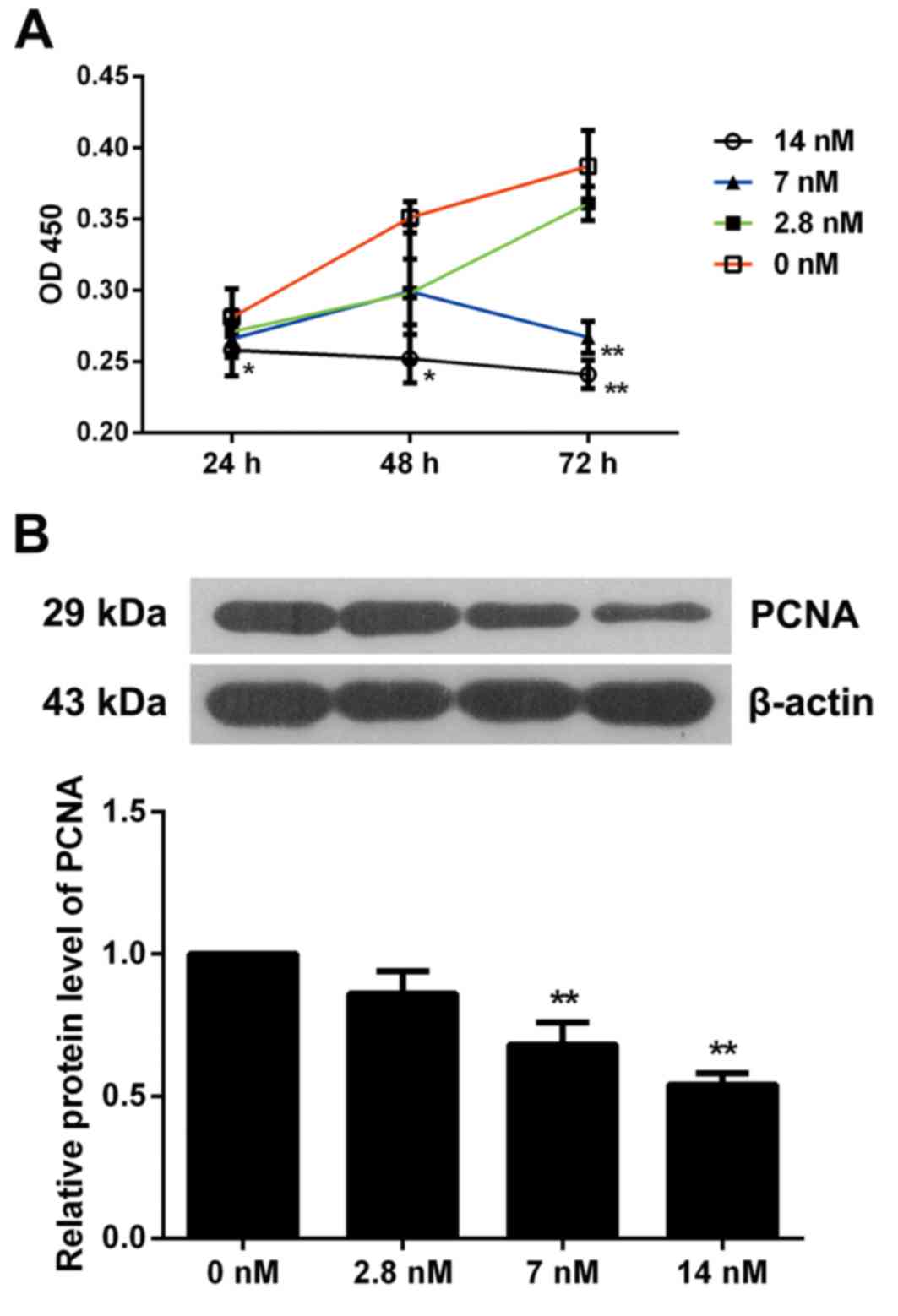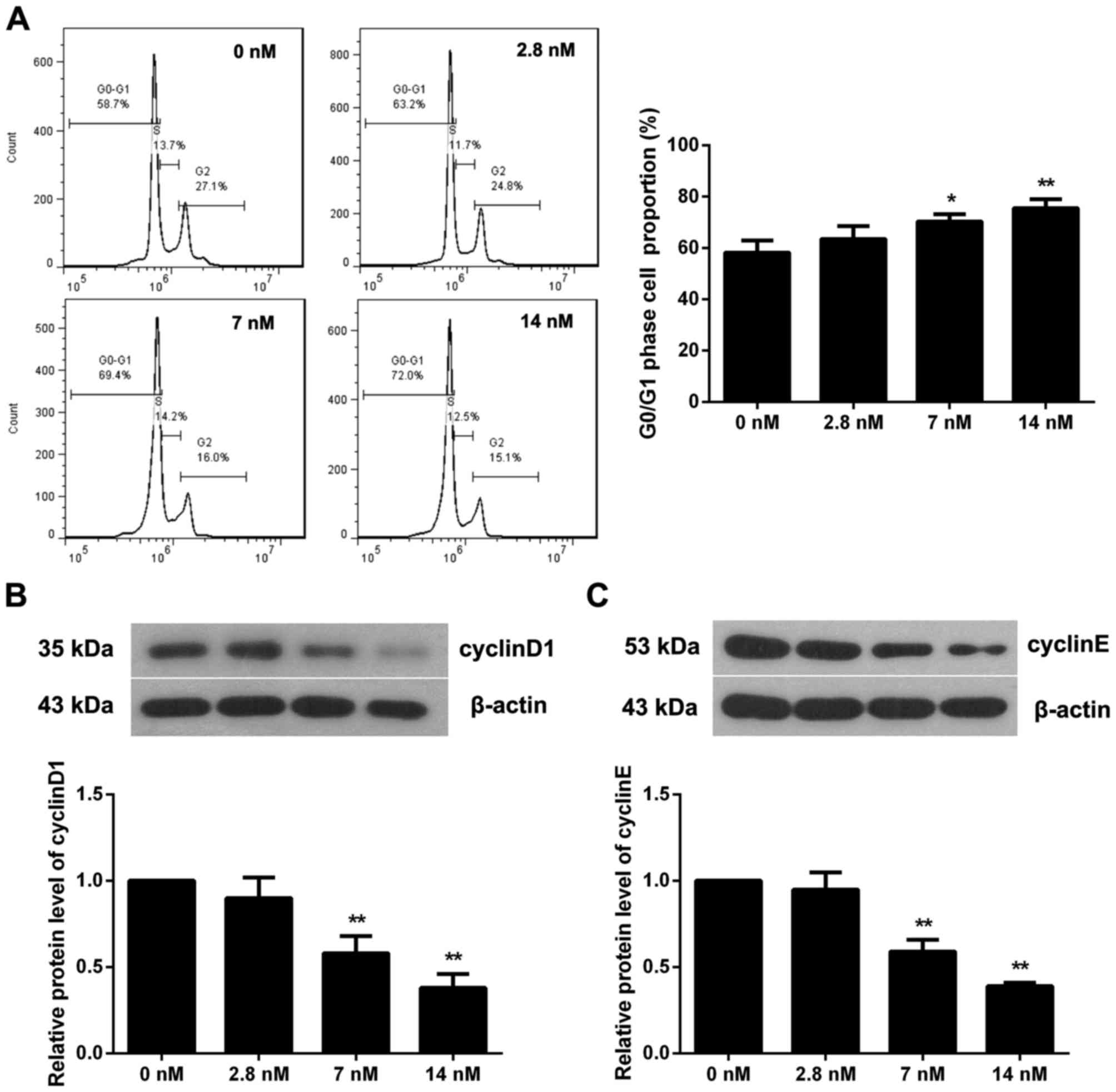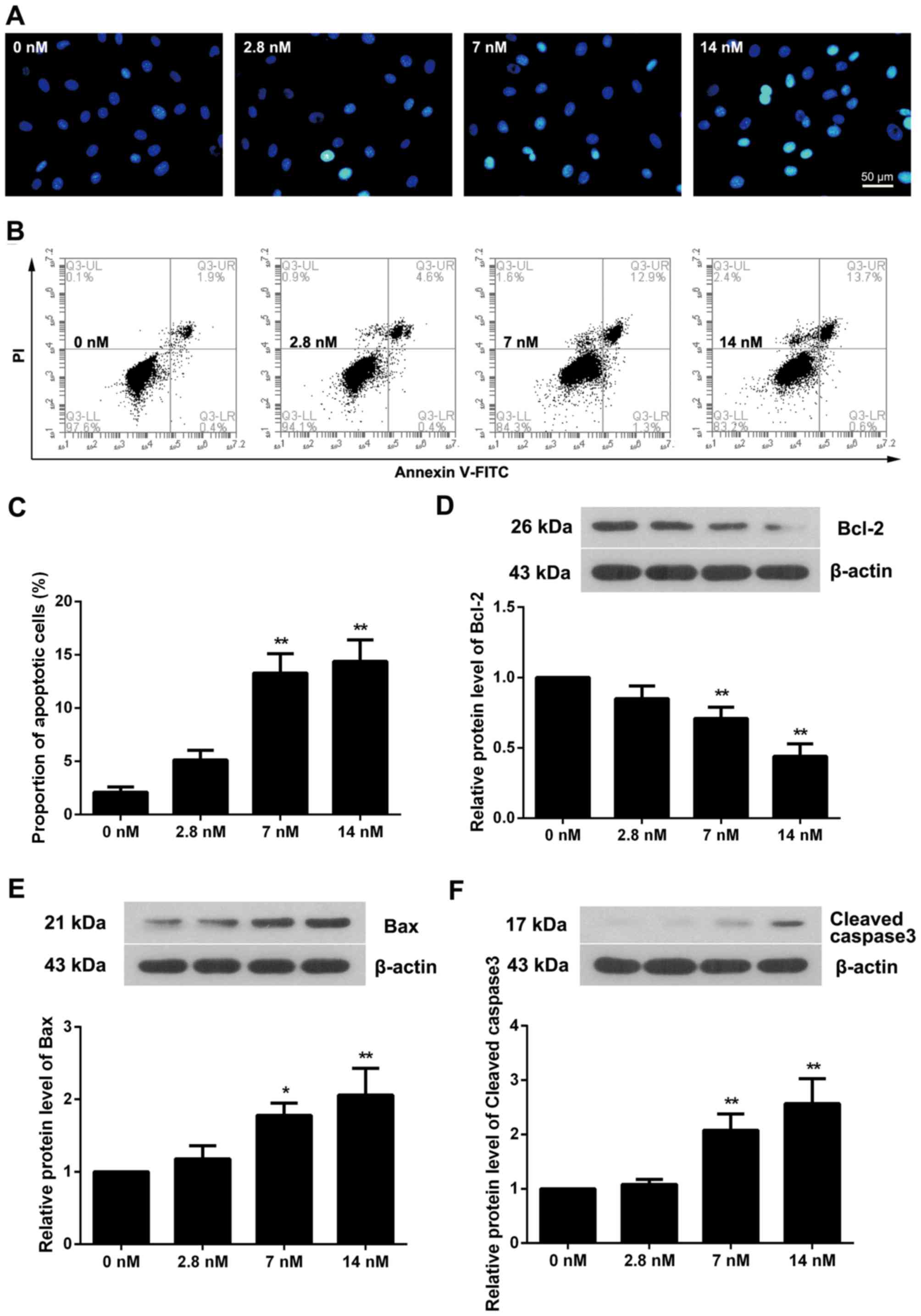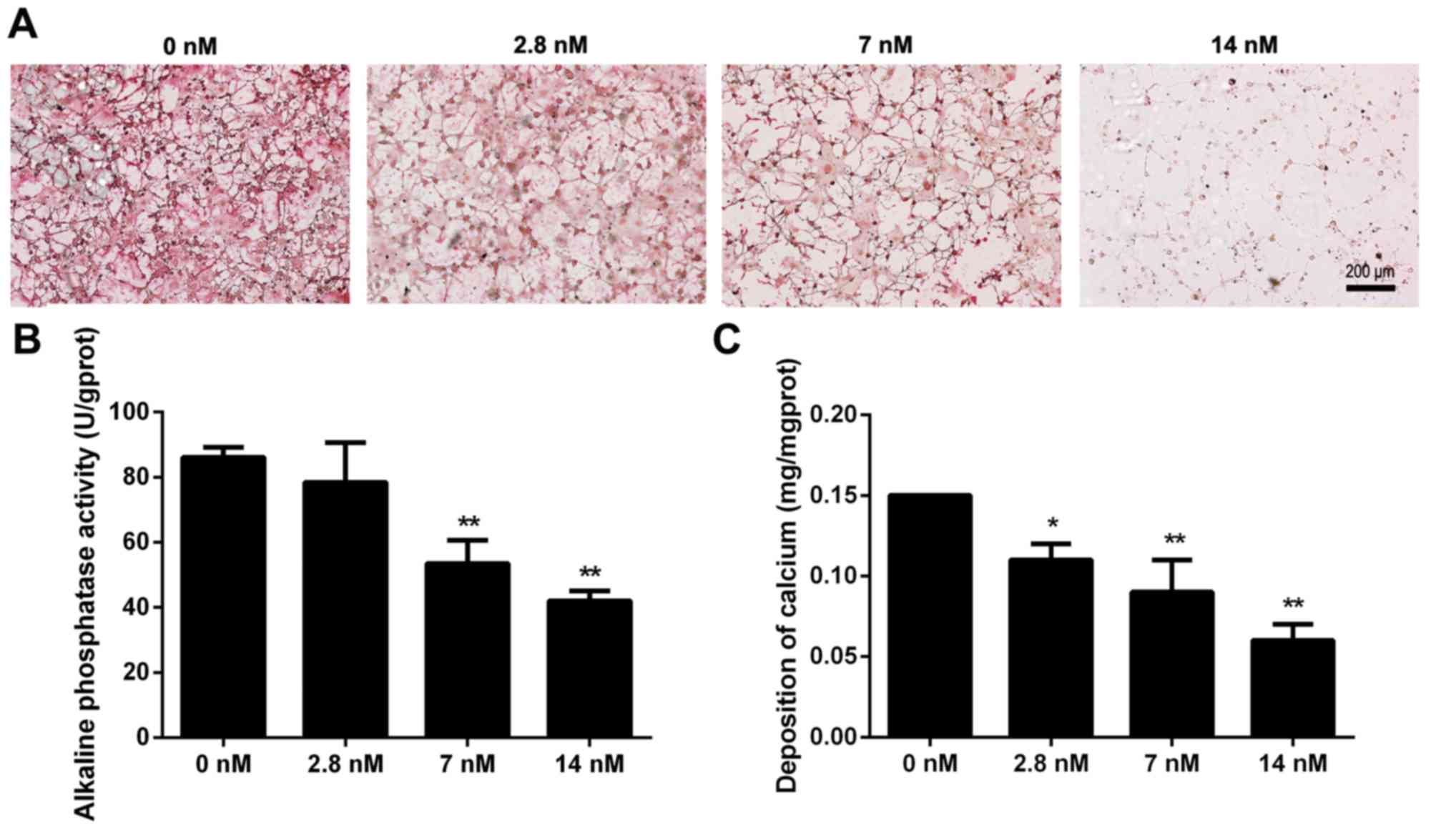|
1
|
Braun J and Sieper J: The sacroiliac joint
in the spondyloarthropathies. Curr Opin Rheumatol. 8:275–287. 1996.
View Article : Google Scholar : PubMed/NCBI
|
|
2
|
Reveille JD and Brown MA: Epidemiology of
ankylosing spondylitis: IGAS 2009. J Rheumatol. 37:2624–2625. 2010.
View Article : Google Scholar : PubMed/NCBI
|
|
3
|
Toussirot E and Wendling D: Current
guidelines for the drug treatment of ankylosing spondylitis. Drugs.
56:225–240. 1998. View Article : Google Scholar : PubMed/NCBI
|
|
4
|
Schett G and Rudwaleit M: Can we stop
progression of ankylosing spondylitis? Best Pract Res Clin
Rheumatol. 24:363–371. 2010. View Article : Google Scholar : PubMed/NCBI
|
|
5
|
Wang J, Wang A, Zeng H, Liu L, Jiang W,
Zhu Y and Xu Y: Effect of triptolide on T-cell receptor beta
variable gene mRNA expression in rats with collagen-induced
arthritis. Anat Rec (Hoboken). 295:922–927. 2012. View Article : Google Scholar : PubMed/NCBI
|
|
6
|
Xue M, Jiang ZZ, Liu JP, Zhang LY, Wang T,
Wang H, Liu L and Zhou ZX: Comparative study on the
anti-inflammatory and immune suppressive effect of Wilforlide A.
Fitoterapia. 81:1109–1112. 2010. View Article : Google Scholar : PubMed/NCBI
|
|
7
|
Shui G, Wan Y, Jiang C, Zhang H, Chen P,
Wang C and Yao J: Progress in Tripterygium wilfordiiand its
bioactive components in the field of pharmacodynamics and
pharmacology. Zhongguo Zhong Yao Za Zhi. 35:515–520.
2010.PubMed/NCBI
|
|
8
|
Brinker AM, Ma J, Lipsky PE and Raskin I:
Medicinal chemistry and pharmacology of genus Tripterygium
(Celastraceae). Phytochemistry. 68:732–766. 2007.(In Chinese).
View Article : Google Scholar : PubMed/NCBI
|
|
9
|
Liu C, Zhang Y, Kong X, Zhu L, Pang J, Xu
Y, Chen W, Zhan H, Lu A and Lin N: Triptolide prevents bone
destruction in the collagen-induced arthritis model of rheumatoid
arthritis by targeting RANKL/RANK/OPG signal pathway. Evid Based
Complement Alternat Med. 2013:6260382013.PubMed/NCBI
|
|
10
|
Jiang QW, Cheng KJ, Mei XL, Qiu JG, Zhang
WJ, Xue YQ, Qin WM, Yang Y, Zheng DW, Chen Y, et al: Synergistic
anticancer effects of triptolide and celastrol, two main compounds
from thunder god vine. Oncotarget. 6:32790–32804. 2015. View Article : Google Scholar : PubMed/NCBI
|
|
11
|
Jao HY, Yu FS, Yu CS, Chang SJ, Liu KC,
Liao CL, Ji BC, Bau DT and Chung JG: Suppression of the migration
and invasion is mediated by triptolide in B16F10 mouse melanoma
cells through the NF-kappaB-dependent pathway. Environ Toxicol. Sep
29–2015.(Epub ahead of print). PubMed/NCBI
|
|
12
|
Jiang N, Dong XP, Zhang SL, You QY, Jiang
XT and Zhao XG: Triptolide reverses the Taxol resistance of lung
adenocarcinoma by inhibiting the NF-κB signaling pathway and the
expression of NF-κB-regulated drug-resistant genes. Mol Med Rep.
13:153–159. 2016. View Article : Google Scholar : PubMed/NCBI
|
|
13
|
Zhou GX, Ding XL, Huang JF, Zhang H, Wu
SB, Cheng JP and Wei Q: Apoptosis of human pancreatic cancer cells
induced by Triptolide. World J Gastroenterol. 14:1504–1509. 2008.
View Article : Google Scholar : PubMed/NCBI
|
|
14
|
Pan J: RNA polymerase-an important
molecular target of triptolide in cancer cells. Cancer Lett.
292:149–152. 2010. View Article : Google Scholar : PubMed/NCBI
|
|
15
|
Qiu D and Kao PN: Immunosuppressive and
anti-inflammatory mechanisms of triptolide, the principal active
diterpenoid from the Chinese medicinal herb Tripterygium wilfordii
Hook. f. Drugs R D. 4:1–18. 2003. View Article : Google Scholar : PubMed/NCBI
|
|
16
|
Matta R, Wang X, Ge H, Ray W, Nelin LD and
Liu Y: Triptolide induces anti-inflammatory cellular responses. Am
J Transl Res. 1:267–282. 2009.PubMed/NCBI
|
|
17
|
Chen L, Liu Q, Huang Z, Wu F, Li Z, Chen X
and Lin T: Tripchlorolide induces cell death in lung cancer cells
by autophagy. Int J Oncol. 40:1066–1070. 2012. View Article : Google Scholar : PubMed/NCBI
|
|
18
|
Westfall SD, Nilsson EE and Skinner MK:
Role of triptolide as an adjunct chemotherapy for ovarian cancer.
Chemotherapy. 54:67–76. 2008. View Article : Google Scholar : PubMed/NCBI
|
|
19
|
Bodduluru LN, Kasala ER, Madhana RM, Barua
CC, Hussain MI, Haloi P and Borah P: Naringenin ameliorates
inflammation and cell proliferation in benzo(a)pyrene induced
pulmonary carcinogenesis by modulating CYP1A1, NFκB and PCNA
expression. Int Immunopharmacol. 30:102–110. 2016. View Article : Google Scholar : PubMed/NCBI
|
|
20
|
Ben-Izhak O, Bar-Chana M, Sussman L,
Dobiner V, Sandbank J, Cagnano M, Cohen H and Sabo E: Ki67 antigen
and PCNA proliferation markers predict survival in anorectal
malignant melanoma. Histopathology. 41:519–525. 2002. View Article : Google Scholar : PubMed/NCBI
|
|
21
|
Yang S, Chen J, Guo Z, Xu XM, Wang L, Pei
XF, Yang J, Underhill CB and Zhang L: Triptolide inhibits the
growth and metastasis of solid tumors. Mol Cancer Ther. 2:65–72.
2003.PubMed/NCBI
|
|
22
|
Yang SX, Xie SS, Gao HL, Ma DL and Long
ZZ: Triptolide suppresses T-lymphocyte proliferation by inhibiting
interleukin-2 receptor expression, but spares interleukin-2
production and mRNA expression. Int J Immunopharmacol. 16:895–904.
1994. View Article : Google Scholar : PubMed/NCBI
|
|
23
|
Sherr CJ: G1 phase progression: Cycling on
cue. Cell. 79:551–555. 1994. View Article : Google Scholar : PubMed/NCBI
|
|
24
|
Sherr CJ: Growth factor-regulated G1
cyclins. Stem Cells. 12 Suppl 1:S47–S57. 1994.
|
|
25
|
Sherr CJ, Kato J, Quelle DE, Matsuoka M
and Roussel MF: D-type cyclins and their cyclin-dependent kinases:
G1 phase integrators of the mitogenic response. Cold Spring Harb
Symp Quant Biol. 59:11–19. 1994. View Article : Google Scholar : PubMed/NCBI
|
|
26
|
Zhao F, Chen Y, Li R, Liu Y, Wen L and
Zhang C: Triptolide alters histone H3K9 and H3K27 methylation state
and induces G0/G1 arrest and caspase-dependent apoptosis in
multiple myeloma in vitro. Toxicology. 267:70–79. 2010. View Article : Google Scholar : PubMed/NCBI
|
|
27
|
Zhang H, Zhu W, Su X, Wu S, Lin Y, Li J,
Wang Y, Chen J, Zhou Y, Qiu P, et al: Triptolide inhibits
proliferation and invasion of malignant glioma cells. J Neurooncol.
109:53–62. 2012. View Article : Google Scholar : PubMed/NCBI
|
|
28
|
Liu J, Shen M, Yue Z, Yang Z, Wang M, Li
C, Xin C, Wang Y, Mei Q and Wang Z: Triptolide inhibits
colon-rectal cancer cells proliferation by induction of G1 phase
arrest through upregulation of p21. Phytomedicine. 19:756–762.
2012. View Article : Google Scholar : PubMed/NCBI
|
|
29
|
Oliveira AR, Beyer G, Chugh R, Skube SJ,
Majumder K, Banerjee S, Sangwan V, Li L, Dawra RK, Subramanian S,
et al: Triptolide abrogates growth of colon cancer and induces cell
cycle arrest by inhibiting transcriptional activation of E2F. Lab
Invest. 95:648–659. 2015. View Article : Google Scholar : PubMed/NCBI
|
|
30
|
Pucci B, Kasten M and Giordano A: Cell
cycle and apoptosis. Neoplasia. 2:291–299. 2000. View Article : Google Scholar : PubMed/NCBI
|
|
31
|
Martinou JC and Youle RJ: Mitochondria in
apoptosis: Bcl-2 family members and mitochondrial dynamics. Dev
cell. 21:92–101. 2011. View Article : Google Scholar : PubMed/NCBI
|
|
32
|
Donovan M and Cotter TG: Control of
mitochondrial integrity by Bcl-2 family members and
caspase-independent cell death. Biochim Biophys Acta. 1644:133–147.
2004. View Article : Google Scholar : PubMed/NCBI
|
|
33
|
Li J, Zhu W, Leng T, Shu M, Huang Y, Xu D,
Qiu P, Su X and Yan G: Triptolide-induced cell cycle arrest and
apoptosis in human renal cell carcinoma cells. Oncol Rep.
25:979–987. 2011.PubMed/NCBI
|
|
34
|
Owen TA, Aronow M, Shalhoub V, Barone LM,
Wilming L, Tassinari MS, Kennedy MB, Pockwinse S, Lian JB and Stein
GS: Progressive development of the rat osteoblast phenotype in
vitro: Reciprocal relationships in expression of genes associated
with osteoblast proliferation and differentiation during formation
of the bone extracellular matrix. J Cell Physiol. 143:420–430.
1990. View Article : Google Scholar : PubMed/NCBI
|
|
35
|
Huang J, Zhou L, Wu H, Pavlos N, Chim SM,
Liu Q, Zhao J, Xue W, Tan RX, Ye J, et al: Triptolide inhibits
osteoclast formation, bone resorption, RANKL-mediated NF-κB
activation and titanium particle-induced osteolysis in a mouse
model. Mol Cell Endocrinol. 399:346–353. 2015. View Article : Google Scholar : PubMed/NCBI
|
|
36
|
Park B: Triptolide, a diterpene, inhibits
osteoclastogenesis, induced by RANKL signaling and human cancer
cells. Biochimie. 105:129–136. 2014. View Article : Google Scholar : PubMed/NCBI
|


















